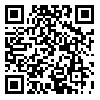
Middle Eastern Journal of Disability Studies
Middle Eastern Journal of Disability Studies

Volume 3, Issue 1 (4-2013)
MEJDS (2013) 3: 44 |
Back to browse issues page
Download citation:
BibTeX | RIS | EndNote | Medlars | ProCite | Reference Manager | RefWorks
Send citation to:



BibTeX | RIS | EndNote | Medlars | ProCite | Reference Manager | RefWorks
Send citation to:
Javidnia S, Kamkari K, Movallali G. The Pychometric Properties of the New Version of Tehran‒Stanford‒Binet Intelligence Scale in Children with Dyslexia. MEJDS 2013; 3 (1) :44-51
URL: http://jdisabilstud.org/article-1-299-en.html
URL: http://jdisabilstud.org/article-1-299-en.html
1- دانشگاه علوم بهزیستی و توانبخشی
Abstract: (18298 Views)
Objective: The goal of the present study was to investigate the pychometric properties of the new version of Tehran‒Stanford‒Binet intelligence scale in the identification of children with dyslexia.
Methods: This psychometric study was conducted on the dyslexic students undergoing intervention in Tehran province’s elementary schools in 2011. The population under study was 120 students with dyslexia who were selected based on stratified purposive sampling. The new version of Tehran‒Stanford‒Binet (TSB) Intelligence Scale which includes 10 subtests in verbal and nonverbal domains (fluid reasoning, knowledge, quantitative reasoning, visual spatial processing and working memory and eight IQ) was used. The specific characteristic of this tool is its ability to calculate the combined scores connected to reading skills. The Roc curve, Cronbach’s Alpha and Pearson’s correlation were used to analyze the data.
Results: Results show that the new version of the TSB‒5 has good reliability and diagnostic validity. It has 98% sensitivity and a desirable potential to identify students with dyslexia (72%).
Conclusions: The TSB‒5 can be used to identify dyslexia.
Methods: This psychometric study was conducted on the dyslexic students undergoing intervention in Tehran province’s elementary schools in 2011. The population under study was 120 students with dyslexia who were selected based on stratified purposive sampling. The new version of Tehran‒Stanford‒Binet (TSB) Intelligence Scale which includes 10 subtests in verbal and nonverbal domains (fluid reasoning, knowledge, quantitative reasoning, visual spatial processing and working memory and eight IQ) was used. The specific characteristic of this tool is its ability to calculate the combined scores connected to reading skills. The Roc curve, Cronbach’s Alpha and Pearson’s correlation were used to analyze the data.
Results: Results show that the new version of the TSB‒5 has good reliability and diagnostic validity. It has 98% sensitivity and a desirable potential to identify students with dyslexia (72%).
Conclusions: The TSB‒5 can be used to identify dyslexia.
Keywords: Dyslexia, Sensitivity, Reliability, Diagnostic Validity, Tehran-Stanford-Binet Intelligence Scale
Type of Study: Original Research Article |
Subject:
Rehabilitation
Send email to the article author
| Rights and permissions | |
 |
This work is licensed under a Creative Commons Attribution-NonCommercial 4.0 International License. |



